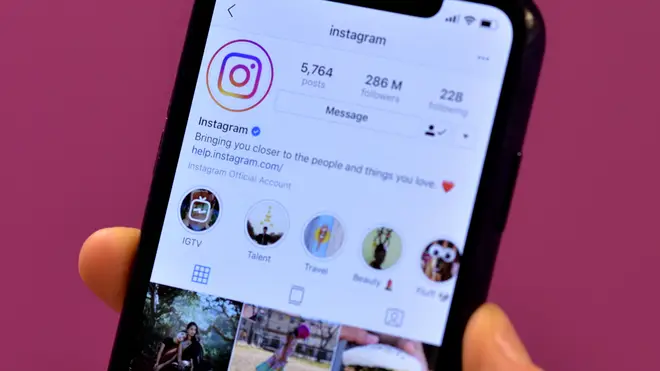
Tom Swarbrick 4pm - 6pm
15 April 2021, 12:14

The social media app’s search recommendation tool showed some users terms such as ‘appetite suppressant’.
Instagram has apologised over an issue with its algorithm which led to diet-based content being suggested to users with eating disorders.
The BBC reported that a mistake within the app meant the search function automatically recommended terms including “appetite suppressants” and “fasting” to some users.
The Facebook-owned platform said the suggested terms feature was never meant to include terms around weight loss and that the issue had been fixed earlier this week.
The new feature was designed to offer users suggestions for search terms based on the content they had previously liked and accounts they follow on the platform.
“To help people discover content they’re interested in, we recently rolled out a new way to search on Instagram beyond hashtags and usernames, where you tap on the search bar and we suggest topics you may want to search for,” a Facebook company spokesman said.
“Those suggestions, as well as the search results themselves, are limited to general interests.
“Weight loss should not have been one of them and we’ve taken steps to prevent these terms from appearing here. We’re sorry for any confusion caused.”
Campaigners have previously warned of the dangers of the imagery and language on social media around body image, particularly the impact they can have on young and vulnerable people and their mental health.
Instagram and other platforms have been criticised for allowing a range of content around dieting, detoxing and cosmetic surgery on the platform which could affect some users.
Instagram said it has policies to prevent the promotion, encouragement or glorifying of eating disorders, blocks certain posts advertising weight-loss products from being seen by under-18s, and has blocked a number of hashtags linked to the topic.
In 2019, the platform announced a crackdown on diet and cosmetic surgery content, which also introduced rules that said any post which makes a “miraculous” claim about a diet or weight-loss product and is linked to a commercial offer such as a discount code would be removed.